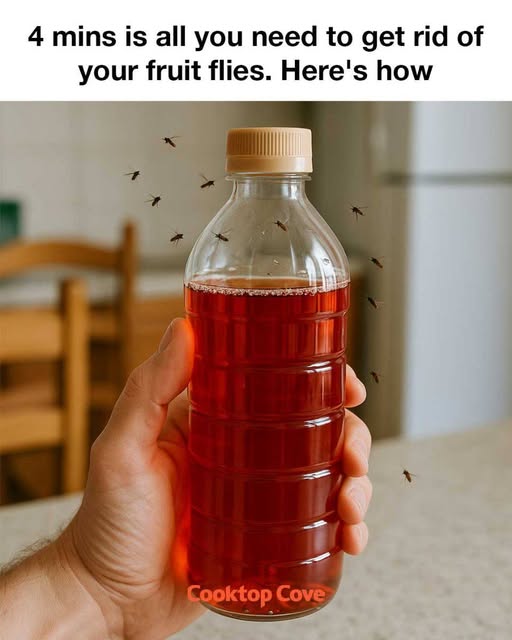5. The Vinegar Trap Method
The vinegar trap is a simple yet effective way to catch and kill fruit flies. To create this trap, pour about half an inch of apple cider vinegar into a small bowl or jar. Add a few drops of dish soap to break the surface tension of the vinegar, making it difficult for flies to escape once they land.
Cover the bowl or jar with plastic wrap and secure it with a rubber band. Poke small holes in the plastic wrap to allow fruit flies to enter. Place the trap near areas where fruit flies are most active, such as near fruit bowls or trash cans. The flies will be attracted to the vinegar, enter the trap, and drown in the liquid.
6. The Fruit Trap Technique
Another effective method is the fruit trap technique, which uses ripe fruit to lure fruit flies. Place a piece of overripe fruit in a bowl and cover it with plastic wrap. Secure the wrap with a rubber band and poke small holes in it.
The fruit flies will be drawn to the scent of the fruit, enter through the holes, and become trapped inside. This method is particularly useful if you have leftover fruit that is beginning to spoil and attract flies.
7. Using Essential Oils as a Deterrent
Essential oils such as peppermint, eucalyptus, and lemongrass can be used as natural deterrents to fruit flies. These oils have strong scents that fruit flies find unpleasant, making them an excellent way to keep these pests at bay.
To use essential oils, mix a few drops with water in a spray bottle and apply the solution to areas where fruit flies are commonly found, such as countertops, sinks, and trash cans. This will help repel fruit flies and prevent them from returning.
8. The Power of Cleaning and Prevention
Maintaining a clean environment is crucial in preventing fruit fly infestations. Regularly clean countertops, sinks, and other surfaces to remove food residues that may attract fruit flies. Dispose of overripe or rotting fruits and vegetables promptly, and ensure that trash cans are sealed tightly.
Additionally, clean drains and garbage disposals regularly, as these can become breeding grounds for fruit flies. By keeping your home clean and free of potential food sources, you can significantly reduce the likelihood of a fruit fly infestation.
9. Common Mistakes to Avoid
One common mistake is leaving ripe fruits and vegetables out in the open, which can attract fruit flies. Instead, store these items in the refrigerator or in sealed containers. Another mistake is failing to address potential breeding sites, such as dirty drains or garbage disposals.
Additionally, some people may use traps that are too large or have holes that are too big, allowing fruit flies to escape. Ensure that your traps are appropriately sized and that the holes are small enough to prevent flies from getting out.
10. How to Maintain a Fruit Fly-Free Home
To maintain a fruit fly-free home, practice regular cleaning and proper food storage. Keep fruits and vegetables in the refrigerator or sealed containers, and dispose of any overripe produce promptly. Regularly clean kitchen surfaces, drains, and garbage disposals to remove potential breeding sites.
Consider using essential oils or other natural deterrents to keep fruit flies at bay. By staying vigilant and proactive, you can prevent future infestations and enjoy a clean, pest-free home.
11. When to Call in Professional Help
If your fruit fly problem persists despite your best efforts, it may be time to call in professional pest control services. Professionals have access to more potent treatments and can identify and address underlying issues that may be contributing to the infestation.
Professional help is particularly beneficial if you have a severe infestation that is difficult to manage on your own. By seeking expert assistance, you can ensure that your home is thoroughly treated and protected against future fruit fly problems.

